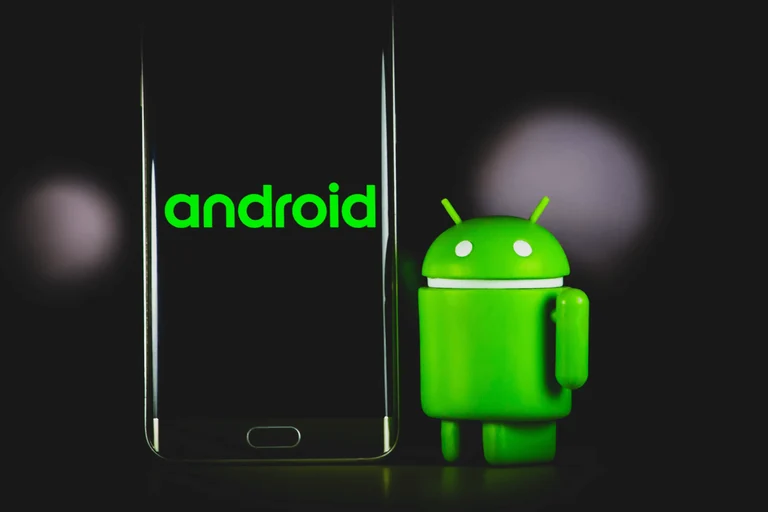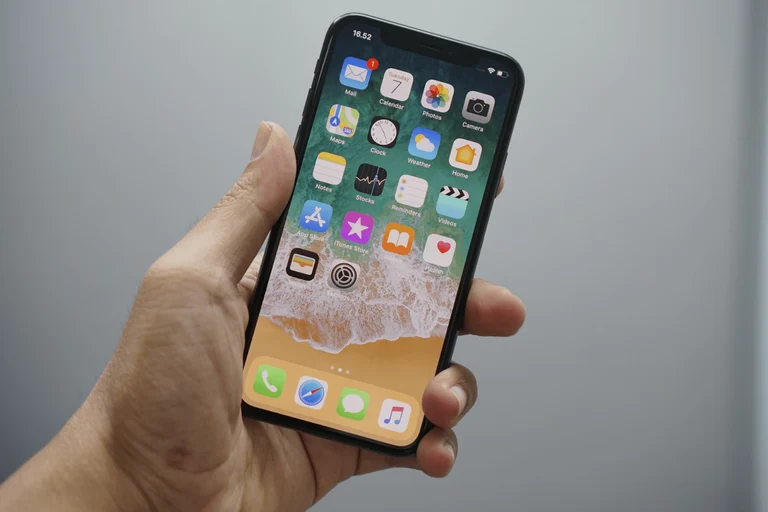Android vs. iOS Development: Which Is For Your Mobile App?
Android and iOS are the most popular mobile operating systems on the worldwide market today. When it comes to choosing Android vs. iOS development for mobile application creators, many are quick to take sides, answering the age-old question “Are you Team Apple or Team Android?” Beyond the aesthetics of a mobile phone app, you should consider the operating system behind these two platforms in order to make an informed decision about which one will better suit your mobile app. The operating system manages both the hardware and software and will ultimately determine the look, feel, and functionality of your app, which will inform how successful it is.
There is no clear winner when it comes to choosing Android or iOS development, which is why other factors must be considered rather than going with what is popular. It’s possible to create a cross-platform app, however, this can be expensive, pose technical issues, and create other challenges, so it would be wise to choose one. Once your app is launched and successful, it would then be easier to begin to develop it on the other platform using its native programming language.
Your app deserves a software development company that supports your app’s unique needs and requirements. Determining whether your next project will utilize Android or iOS development is an important decision and not one that you may feel comfortable making on your own, which is why we’ve compiled a list of pros and cons for each platform in this article. Read on to discern whether Android vs. iOS development is the ideal operating system for your mobile app.
There are six crucial factors to consider when choosing Android vs. iOS development:
- Audience: Who are your target users? Be clear on who your intended audience is as user demographics vary for Android vs. iOS development.
- Budget: How much money can you spend on developing your project? How much will go towards maintaining it? Is there money allocated for technical support and troubleshooting should the help be required?
- Timeline: Does your project have a hard-and-fast deadline or is your timeline flexible? Do you want to spend more time focusing on certain features of the app over others?
- Design needs: Do you have a design mockup, design plan, or app prototype? How do you envision user interface and user experience? The design of your project is important because it determines the ease with which users can get the product or program to do what they want. A good app design is crucial when it comes to the app’s functionality as well.
- Programming language: To what extent are you familiar with Swift or Kotlin, iOS and Android’s popular programming languages, respectively? How much time can you commit to learning about either development language? There might be a large learning curve based on which you decide to go with.
- Marketing Strategy: Do you have a plan for spreading the word about your project? How apps are distributed vary on both platforms and one may be better suited to fit your marketing plan.
Android Development: Versatility and More Creative Options
Programming Language
Google released Android in 2007 and its main source code is Android Open Source Project (AOSP). The original industry language for programming Android apps was Java, however many in the industry have shifted to Kotlin, a more modern programming language created by Google and JetBrains in 2011. At the core layer of an operating system is the kernel and Android uses the Linux kernel, which is open-source. It is also the same kernel used in MacOS.
Fun Fact: Android has a sweet tradition of choosing desserts as code names for their latest models, such as “Snow Cone” for Android 12 and “Tiramisu” for Android 13 DP1 and Android 13 DP2, which are being released in April 2022. While these codenames are no longer used to market Android, they are used internally among employees.

Pros
- More creative freedom: This open-source environment means the source code is easily available for developers to use and modify, which equals greater flexibility and customization. Developers have access to certain features that are limited on the iOS platform. Additionally, Google offers design guidelines that users with little experience can pull from.
- Multiple devices: You can also switch to a different device manufacturer should you want to switch to a different phone brand.
- Larger reach: As of March 2022, Androids boast a significantly higher percentage of the global mobile operating system market coming in at 71.7%, while iOS has 27.57%. Androids are more popular in developing areas such as Africa, Asia, and South America.
- Quicker approval times: Google Play typically takes less than 2 days to approve and publish an app so users can start using it soon after whereas iOS can take much longer.
Cons
- Greater time and costs: More money and effort can be spent on interface design and testing as developers need to consider varying aspect ratios, screen sizes, and resolutions due to different Android updates and versions from varying manufacturers.
- Longer to develop: Android apps take 20-30% more time to develop (device fragmentation) due to possible manufacturer-specific bugs or defects and more devices to test.
- Option Paralysis: Greater customization opportunities and modification options can be a hindrance if you have a strict deadline and feel overwhelmed by the unending possibilities of how your app might look and feel. The open-source code means even the smallest features can be altered can be a blessing for some developers and a curse for others.
iOS Development Will Keep You Streamlined and Secure

Programming Language
The native programming language in iOS is Swift, which Apple introduced in 2014. The older, original language was Objective-C which dates back to the 1980s, but over the last few years, Swift has taken over and can only be used with Apple-specific products, like the iPhone or iPad.
Pros
- Higher ROI: iOS products typically target first-world nations such as North America, Western Europe, and Oceania where users typically have more disposable income. In the United States, iOS development takes the lead with 58.18% of the market share, 54.14% in North America, and 54.29% in Oceania. Additionally, iOS users spend twice as much money on mobile apps and in-app purchases than Android users on Google’s Play Store. Because of this, Android development is more likely to rely on monetizing their apps through mobile ads, which can slow down the app and thus be a turn-off for many users, incentivizing developers to consider iOS instead.
- Standardization: iOS has standardized screen sizes made for specific Apple products, which means there are less interfaces to design and test against. Most Apple products use the same version of iOS. Standardized UI design simplifies what Android developers might have to work harder at. These aspects greatly save time and costs, allowing developers to work on other aspects of the app. However, things are changing with the introduction of the iPhone X series, which boasts a greater variety of screen sizes and UI restrictions.
- Better security: iOS protects user data better than Android can. The source code is closed which means access is limited to Apple and provides a safer and more secure environment that is less likely to let in hackers and bugs. Additionally, iOS products use emulators, which are stronger and more reliable for debugging than simulators, which Android uses. iOS users are more likely to update their operating systems whereas Android users are more likely to be using older operating systems, which are more likely to invite bugs, crashes, and malware.
Cons
- Higher price point: iOS products such as the iPhone and iPad cost significantly more than many Android phones, limiting access to less affluent customers.
- Highly selective: Apps need to go through rigorous testing in order to meet Apple’s standards for the App Store. This restriction means many apps are turned down, which sends developers back to the drawing board.
- Standardization: The standardization guidelines can also be a drawback in that apps may start to resemble each other as there are fewer opportunities to customize apps. However, some may prefer this streamlined nature of these guidelines and the overall minimalist look and feel of Apple apps.
Android vs. iOS Development: How Can Pangea.ai Help
As you can see there are many advantages and drawbacks to both Android vs. iOS development. Android development is great for those who crave more creative freedom and a greater variety of hardware while staying budget-conscious. iOS development is wonderful for those who want to spend less time on designing for different devices and those who prioritize security as well as a streamlined user experience and user design.
If you need help discerning which platform to choose, don’t hesitate to contact us with your project’s requirements, such as timeline, budget, and anything else that would help us narrow our search for the best software development company for your project. The best part? It will take under 15 minutes. In a matter of 72 hours, we will create a customized shortlist of up to 5 vendors on the Pangea platform that are interested in working with your team. We are here to help assuage any anxieties you may have when making a decision in the Android vs. iOS Development debate.
Curious about what sort of vendors we work with? Take a look at our curated list of top Android and iOS Development companies to get a sense of the stellar services that they provide. We look forward to bringing your unique ideas for a mobile app to life.
Android vs. iOS FAQs:
Q1. Which is better: iOS or Android development?
Android development is great for those who want to customize user experience and user design elements with more options to choose from. Those who are not looking to spend a lot of money will find Android development easier on the wallet as well. iOS development is better for those who prefer the streamlined appearance of Apple apps and security assurance that iOS development boasts.
Categories such as one’s skill set, programming language, marketing strategy, development and maintenance cost, as well as target audience should also be considered when deciding between iOS or Android development.
Q2. Which is easier: Android or iOS development?
Android development is easier for those who have experience with Java and Kotlin, whereas those with Objective-C and Swift in their wheelhouse will find iOS development an easier mobile operating system to work within.
Q3. Is Swift faster than Kotlin?
In simple benchmark tests, Swift has shown to be 27% faster than Kotlin – Swift completed the tests in 1.9ms and Kotlin came in at 2.5ms. Swift is also a marked improvement over its predecessor Objective-C which is 6x slower. With Swift, coding has become even more simplified and optimized, which shortens the learning curve and saves you time and money.
In contrast, Kotlin can quickly set up a mobile app development project to function in under 10 minutes, which reduces development time when building native mobile apps. This makes it more valuable for companies with a higher workload. Looking ahead, Kotlin may catch up to speed with Swift as it develops over the years.
The data comparing the speed of Swift to Kotlin is thin as they are both fairly new programming languages and employed for different operating systems and hardware. You need to consider various factors, including but not limited to whether you prefer developer ease over processing performance or which program measurements to consider when testing speed.
